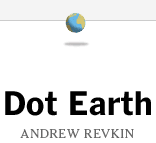Press
Residents near gas leak still live in fear.
You never know from day to day what is going to happen," Mrs. McGee said of their situation. "You have no idea how a gas well will affect your life."
Everything now, from shopping to doctors' appointments and vacations, have to be planned around what is happening with the gas-level readings in their home, she said. "Our lives are not our own."
They have 100 percent readings of the lower explosive levels every week, Mrs. McGee said. They are being told they are safe, as long as the house is vented but are worried about what would happen if the vents accidentally are blocked, she said.
When the McGees first experienced what they call a "black goo" in their water, she said, "they tried to convince us it was perfectly normal."
Shale gas has plenty of detractors.
Environmentalists say fracking, a process in which drillers blast water into a well to shatter rock and unleash the gas, threatens pristine watersheds. Dish, a hamlet of 180 residents north of Fort Worth, Texas, has almost as many wells, compressors and pipelines as people.
‘Children, Old People’
Last year, the Texas Commission on Environmental Quality found benzene, which it classifies as a carcinogen, at 10,700 times the safe long-term exposure limit next to a well 6 miles (10 kilometers) west of town on which a valve had been left open.
“We have children, old people, pregnant women,” Mayor Calvin Tillman says. “They’re not supposed to be subjected to toxins.”
Switzer, who moved to Dimock Township, Pennsylvania, to build a $350,000 dream home with her husband, Jimmy, in 2004, had no idea how shale gas would consume her village of 1,400.
She says she found so much methane in her well that her water bubbled like Alka-Seltzer. Neighbor Norma Fiorentino says methane in her well blew an 8-inch-thick (20-centimeter-thick) concrete slab off the top. The $180 bonus Cabot paid to drill on Switzer’s 7.2 acres (2.9 hectares) and the $900 in royalties she gets each month don’t compensate, she says.
‘Beads and Baubles’
“I feel like one of the Indians who sold Manhattan for beads and baubles,” she says.
The economics of shale don’t look great right now for big companies either. Natural gas prices plunged to $2.41 per MMBtu in September 2009 from $13.69 in July 2008 as the recession cut demand while drilling accelerated. On May 24, gas traded at $4.04.
Includes related videos: John Hanger, secretary of Pennsylvania’s Department of Environmental Protection, talked with Bloomberg's John Lippert in Harrisburg, Pennsylvania, on May 13 about regulation of shale-gas drilling operations in the commonwealth.
"With the rapid development of the shale plays across the U.S., there was a massive influx of lease purchases which drove companies with cash into a bidding frenzy," said Ryan. (Neal Ryan, managing partner at Ryan Oil & Gas Partners LLC.)
"Now many of those companies are being forced to continue drilling plans formulated for a much higher market price in order to protect those lease investments," he said.
That's "a dangerous spot to be in because the domestic market doesn't need this gas right now, but companies are stuck having to protect their capital investment," he said.
As I see it, there are two incommensurate stories being told about climate change. I'm not talking about the largely fake debate between those who say climate change is happening and human-driven (scientists) and those who say it isn't (the GOP).
I'm talking about two different ways of envisioning what we can expect in a climate-changed future, both of which exist among people who take climate change seriously. Sometimes they take up residence in the same head! Like, er, mine. But they don't fit together very well. One comes to us from science, the other from economics.
...Getting clear on this is ultimately going to require a lot of progress in both science and economics. But for my part, when I see scientists panicking and economists telling me not to panic ... my palms start sweating.
...We are stumbling around in the dark, in an area where scientists tell us some very, very nasty beasties dwell. In that situation, it seems to me the overwhelming bias should be toward action -- getting lean, mean, and nimble enough to handle ourselves no matter what slouches our way.
See: EPA chief faces hostile House GOP
See: Beware The Green Dragon! | Right Wing Watch
See: Energy & Commerce Committee Investigates Potential Impacts of Hydraulic Fracturing
See also: Republicans ask court to toss climate case
Grist Staff Bio
David Roberts, Staff Writer
droberts@grist.org
206.876.2020 ext. 220
David was born and raised in the South. A revelatory summer working in Yellowstone National Park convinced him that it was not the world but just the part where he lived that sucked, so he moved out West. After several wayward years spent snowboarding and getting an MA in philosophy (go griz), he woke up with nothing but a dissertation between him and an arid, cloistered life spent debating minutiae with the world's other 12 Dewey scholars. So he bailed. A period was spent trudging through the swamp of Seattle tech work, wading past Amazon.com, IMDb.com, and Microsoft, before the fine folks at Grist fell for his devastating good looks in December 2003.
A list of blogs by members of the Society of Environmental Journalists covering the environment.
The mission of the Society of Environmental Journalists is to strengthen the quality, reach and viability of journalism across all media to advance public understanding of environmental issues.
SEJ provides critical support to journalists of all media in their efforts to cover complex issues of the environment responsibly.
Society of Environmental Journalists Selected Blogs
Coal Tattoo
Ken Ward Jr. of The Charleston Gazette writes about mining's mark on our world.
How to Boil a Frog
Jon Cooksey's funny treatment of the Big Picture — global warming, peak oil, overpopulation, shrinking resources, income inequality — reflects the personal, populist tone and broad scope of his upcoming theatrical docu-comedy of the same name.
Andrew Revkin's Dot Earth and more.
New York Times man Revkin blogs at Dot Earth about climate change, the environment and sustainability; at Amazon on global warming; and also talks to kids via this NYT global warming website.
Sharon Daggat and her husband have a 52 acre farm, 38 acres used as a vineyard, in the Steuben County town of Pulteney. They are concerned about a permit that would allow Chesapeake Energy to store hydrofracking wastewater in an empty natural gas well next to their property. Their property is less than a mile west of Keuka Lake. They fear contamination of their well water and damage to their vineyard.
Sharon Daggat of Pulteney, NY gives testimony.
Video by Stephen D. Cannerelli.
"Hundreds of people living near a natural-gas drilling site in northwest Louisiana have been forced to evacuate their homes after gas seeped into their drinking water.
Authorities in Caddo Parish evacuated at least 135 homes just south of Shreveport on Monday and Tuesday after a well being drilled nearby began spewing gas into the air and tests showed gas in local drinking water. Those who left can't return until Wednesday at the earliest, authorities said.
"We're erring on the side of safety," said Parish Commissioner Michael Thibodeaux, who represents the evacuated area.
Caddo Parish lies at the heart of the Haynesville Shale, a huge natural-gas field discovered in 2008. The field and others like it in Texas, Pennsylvania and other states have helped drive a boom in U.S. natural-gas production in recent years.
As drilling has spread to new and more heavily populated areas, however, some residents have become increasingly concerned about the possibility of air and water contamination. The industry says its practices are safe and argues that companies have drilled tens of thousands of wells in recent years with only a handful of incidents.
Problems in Caddo Parish began Sunday evening when a well being drilled by Exco Resources Inc., a Dallas-based gas producer, struck a pocket of gas much shallower than the company expected. Workers tried to control the well, but gas escaped into the air. Gas was also found in shallow freshwater aquifer that provides drinking water to many residents. Investigators will seek to confirm any link."
If you are predisposed to distrust big business and the bureaucrats who regulate it, then “Gasland,” a soberly muckracking film about the health and environmental dangers of the current nationwide rush to drill for natural gas, will light a flame in you...
The accumulation of stories and sympathetic faces is persuasive; it’s buttressed by testimony from scientists like Theo Colborn and Al Armendariz, named regional director of the Environmental Protection Agency in Dallas since the film was completed. Most viewers who seek out “Gasland” are likely to share Mr. Fox’s outrage (which he expresses in melancholy tones) and to accept the picture, familiar and so often true, of heedless profiteering, co-opted and ineffective regulation, Orwellian spin control and innocent, ruined lives. Comparisons to the oil spill in the Gulf of Mexico will be unavoidable...
Mr. Fox shows a general preference for vivid images — bright red Halliburton trucks, beeping but unidentified scientific instruments — over the more mundane crossing the t’s and dotting the i’s of investigative journalism...
Mr. Fox closes with an ominous warning about the threat fracking poses to New York City’s watershed. New Yorkers who are frightened at the prospect will want to know that the state recently tightened regulations governing drilling in that area, at least temporarily.
This article appeared in the June 21, 2010 edition of The Nation.
When a well is fracked—each well is generally fracked up to ten times—between 15 and 40 percent of the mix flows back to the surface. Companies operating in the Marcellus, which is naturally radioactive, must find a way to dispose of thousands of gallons of water, toxic chemicals, brine and radium.
There are several ways things can go wrong, Horwitt says. Fluids can be spilled during transport, they can travel underground through natural or man-made fractures, or they can contaminate nearby areas if they're not stored properly...
Citizen action groups have popped up all over the Marcellus region, including the Shaleshock Action Alliance and the Pennsylvania-based Damascus Citizens for Sustainability, and around the country.
On May 26 As You Sow, a shareholder advocacy organization representing the Park Foundation of Ithaca, won support from a surprising 26 percent of shares at ExxonMobil's annual meeting for a proposal that would have required the company to disclose its efforts to reduce risks from natural gas drilling. "The Gulf oil spill is a powerful example of how oil and gas drilling can devastate the environment," Park Foundation executive director Jon Jensen wrote in a statement. "This is a good first step in responsibly seeking energy in a way that protects the environment, human health, and the welfare of the company."
See: As You Sow | Mixplex
See: Dusty Horwitt. (2009). "Drilling Around the Law Report." Environmental Working Group. 24 pages.
See: Exxon Confronts Nuns, Calpers Over Global Warming Plans, Boskin
Cap-and-trade is deader than dead. Everyone in Washington officialdom knows that. Virtually no one in Washington officialdom understands how it would work or how much economists think it would cost, but they're certain it's bad, bad, bad and had to die.
Polluting industries and wealthy right-wing oligarchs, aided by a well-funded grassroots army, sympathetic conservative politicos, and a major cable TV news network, cast cap-and-trade as a plague of socialist cooties that would destroy the economy. The left's Purist Brigade wove florid tales of corruption and plutocracy. The reality -- a long, opaque, technocratic bill burdened with several high-profile side deals -- inspired no one. All the passion, all the anger, was found on the side of opponents.
4) The BP Gulf oil spill kills energy reform
5) The U.N. climate process saves itself
About Grist
You know how some people make lemonade out of lemons? At Grist, we're making lemonade out of looming climate apocalypse.
It's more fun than it sounds, trust us!
Grist has been dishing out environmental news and commentary with a wry twist since 1999 -- which, to be frank, was way before most people cared about such things. Now that green is in every headline and on every store shelf (bamboo hair gel, anyone?), Grist is the one site you can count on to help you make sense of it all.
Each day, we use our Clarity-o-Meter to draw out the real meaning behind green stories, and to connect big issues like climate change to daily life. We count on our users to bring their stories to the table, too -- through blogs, photos, and whatever else they care to share. Except Jell-O molds. Those things scare us.
Grist Staff Bio
David Roberts, Staff Writer
droberts@grist.org
206.876.2020 ext. 220
David was born and raised in the South. A revelatory summer working in Yellowstone National Park convinced him that it was not the world but just the part where he lived that sucked, so he moved out West. After several wayward years spent snowboarding and getting an MA in philosophy (go griz), he woke up with nothing but a dissertation between him and an arid, cloistered life spent debating minutiae with the world's other 12 Dewey scholars. So he bailed. A period was spent trudging through the swamp of Seattle tech work, wading past Amazon.com, IMDb.com, and Microsoft, before the fine folks at Grist fell for his devastating good looks in December 2003.


















